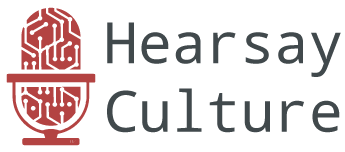I am pleased to post Show # 224, November 13, my interview with my colleague Prof. Megan Squire of Elon University on open source data-mining. Megan is doing unique and challenging work looking at 43,000+ (not a typo) datasets of communications between free and open-source software (“FLOSS”) coders and programmers. An advocate of and writer about “clean data,” Megan is analyzing this massive amount of information in order to answer questions like “how software can be more efficient” and “how developers talk to each other.”
This is a work-in-progress, so Megan is still deep within the data weeds, but nonetheless there are insights that can now be gleaned from the data. In our discussion, we talked about Megan’s methods, expectations and preliminary thoughts about answers to the above and other questions. I’m fortunate to count Megan among my great colleagues in the communications, political science and technology spaces at Elon. I hope that you enjoy our chat!
Podcast: Play in new window | Download | Embed
Subscribe: RSS
